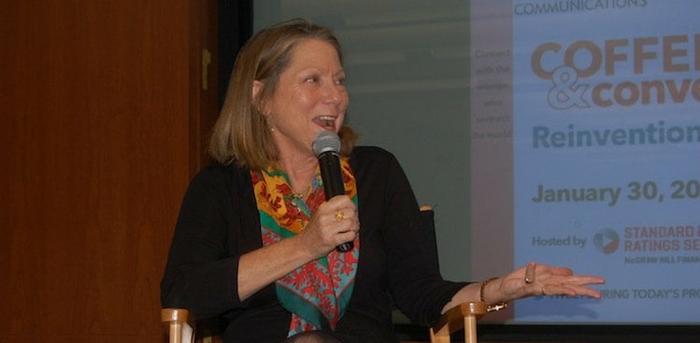
You haven’t made it until you’ve been fired.
Last Friday morning, I joined the New York Women in Communications organization to hear Jill Abramson, the editor of The New York Times who was very publicly fired last year, speak about her experience.
After she made this proclamation—and the room stopped laughing and clapping, she asked the audience how many of us had been fired. And as I looked around the room of 100 or so women—successful TV producers, magazine editors, marketing and PR professionals, even TODAY Show anchor Erica Hill—I was shocked that the vast majority of them raised their hands.
OK, so being let go is probably not exactly the secret ingredient to their success, but what these women did have in common was that they saw being fired not as the end of their careers, but as a jumping-off point for something even better.
Here’s hoping that you can make it without being fired, but if the worst were to happen, these lessons from Abramson will help you learn from it and move on to your next big thing.
Dig Deep
One woman in the audience asked Abramson for a play-by-play of the day she was fired. She describes walking out of the Times building that day in somewhat of a daze, then stopping and asking herself how she really felt. When she thought about it, she wasn’t sad, she wasn’t angry—she was actually incredibly relieved. She had been working in a newsroom for decades, and realized this was actually an incredible opportunity to think about what she really wanted to do next.
This might not be your situation—you might be sad, angry, or scared, and that’s 100% OK (and expected). But most of the time, feelings are complicated. And if you can stop, think, and identify the intricacies of what you’re feeling, you may find something deep down that will help you move forward in a positive way.
Recognize Your Weaknesses
Abramson shared that her core strength was writing and reporting—and that managing others had never been her strong suit. She admitted that she was often “demanding” and “impatient” with staffers, noting that the two are “not a great combo,” and that her management style had contributed in part to her departure.
It was honestly refreshing to hear someone so openly, calmly, and non-defensively talk about her shortcomings. We all have them, and only by recognizing what they are can we figure out how to work on them or move past them (or, well, look for roles that better utilize our strengths).
Don’t Harbor Resentment
When asked how she fills her time now, Abramson mentioned that she still reads the New York Times every day. In fact, she still loves and admires the publication and had nothing but good to say about the place she ran for three years.
I’d imagine that being fired would make you want to burn the place down, à la Milton in Office Space, but staying positive (or at least neutral) is a much better look—especially when you start talking to new potential employers. Remember that no matter what happened, the place you’re leaving is a part of your history. There was a reason you were there. You contributed to it in some way. And you likely still have colleagues and perhaps even friends there. Being negative about it will hurt no one but you.
Don’t Be Ashamed
Abramson has made it clear that she’s not ashamed of being fired. “I was in fact insistent that that be publicly clear because I was not ashamed of that,” she said in an interview for Cosmopolitan, her first time opening up to the media since her departure. “Especially in this economy people are fired right and left for arbitrary reasons, and there are sometimes forces beyond your control.”
You can’t change the fact that you’ve been fired, but you can change what happens next. There’s arguably no other job like the top post at The New York Times. But instead of letting that frustrate her, Abramson has forged a completely new path—teaching at Harvard, doing political reporting, and co-founding a startup. She’s reinventing herself in an incredible way—and that’s nothing to be ashamed of.
I know, a lot of this is easier said than done, especially if you’re really, really missing that paycheck. So, if you’re struggling, see if you can find someone who’s gone through the experience, too. As I learned, there are more out there than you’d imagine.
And for more on recovering from being fired, job search expert Jenny Foss has some great tips for owning your story and explaining what happened to interviewers.
Hang in there. Abramson’s future is bright—and yours is, too.